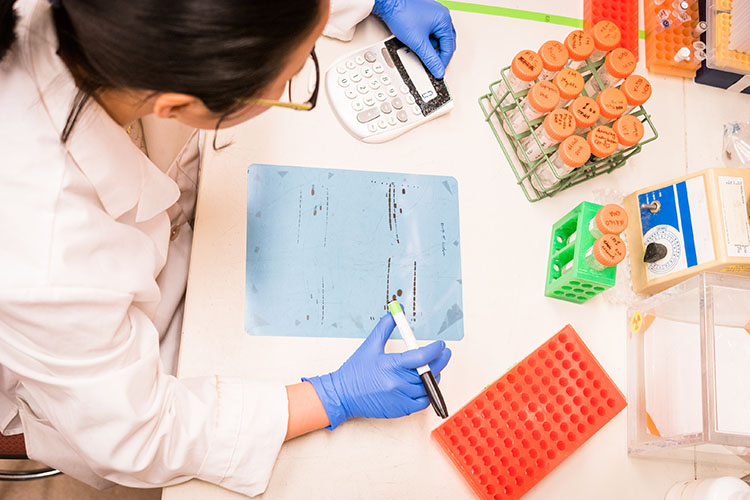Scientific Record Keeping Tips
Good record keeping is critical in scientific research because it facilitates data analysis, writing publications, drafting presentations/posters, and collaboration. It also allows independent replication of scientific observations by others - this is the foundation of advancing science.
Laboratory records are also vital for intellectual property claims. Your laboratory notes can also help you with defense against false allegations of research misconduct. Your laboratory notebook therefore can be a good record of your activities and state of mind while in the lab.
"Data: Factual information (as measurements or statistics) used as a basis for reasoning, discussion, or calculation.” (The Merriam-Webster Dictionary)
Most research institutes, universities, and corporations require accurate scientific record keeping to meet current policies and standards for the conduct of good science.
It is important to remember that a lab notebook is a record of both physical and mental activities.
Whether you record your notes on paper or on a computer (digital notes), these documents need to meet the following criteria:
- Legible
- Clearly organized
- Timely
- Thorough
- Complete
- Secure
- Backed-up
- Well-organized
- Traceable and ready for audits and review by others
If you are maintaining your lab notes in a paper notebook, you will need to perform a few extra steps to comply with the above criteria. However, an Electronic Lab Notebook (ELN) can automate some of these tedious steps for you to save time, increase lab productivity and reduce waste. For example, a good software package can automatically back up your notes securely in the cloud, track changes (version control), and allow you to share files and notes with colleagues.
Laboratory notes ideally include the following details:
- Experimental procedures and the appropriate protocols
- The date and possibly times and locations for each step of the experiment
- The objectives and rationale behind the performed experiments
- The precise steps required to reproduce the experimental data
- Which project does this experiment belong to?
- A brief discussion and interpretation of the obtained data (negative and positive)
- What are the next planned steps?
You can learn more about laboratory scientific note taking by referring to the following documents released by the National Institutes of Health Office of Intramural Studies:
UPDATE March 13th 2021: This article was written 3 years ago when the Electronic Lab Notebook market was a relatively new and evolving market. The popularity of digital lab notebooks have increased substantially since then. A good Electronic Lab Notebook system can you automate a lot of processes in the lab to increase efficiency. Additionally with an digital system you can automate document review process and signature flows, create fillable forms, manage inventory, create SOPs and protocols, and implement a system that can be used by everyone in a laboratory based organization. Learn more by requesting a live demo of LabLog by clicking on the button below.
If you are curious about the benefits of an Electronic Lab Notebook, try the LabLog app for free from Google play store or iOS App Store:
Similar articles:
6 misconceptions about electronic lab notebooks: https://labnotebook.app/blog/6-common-misconceptions-about-lab-notebook-apps
Lab management simplified: https://labnotebook.app/blog/lab-management-simplified
10 Best Cloud Apps For Research Scientists: https://labnotebook.app/blog/10-best-cloud-apps-for-research-scientists
81 - 3947253
VAT No. GB 384 5765 51.
71-75 Shelton Street,
Covent Garden, London, England, WC2H 9JQ


